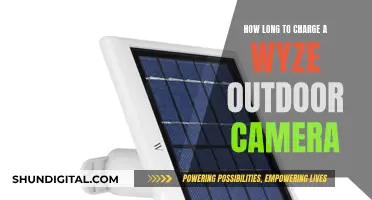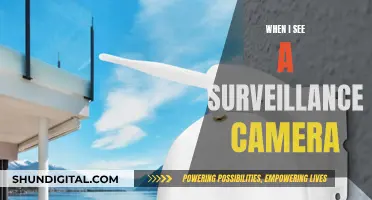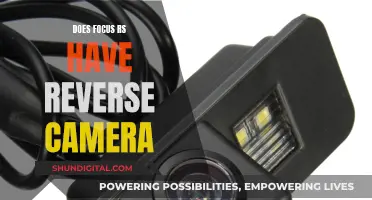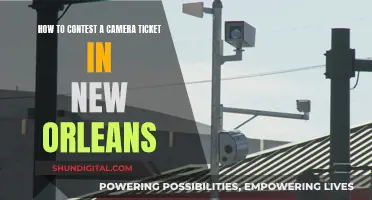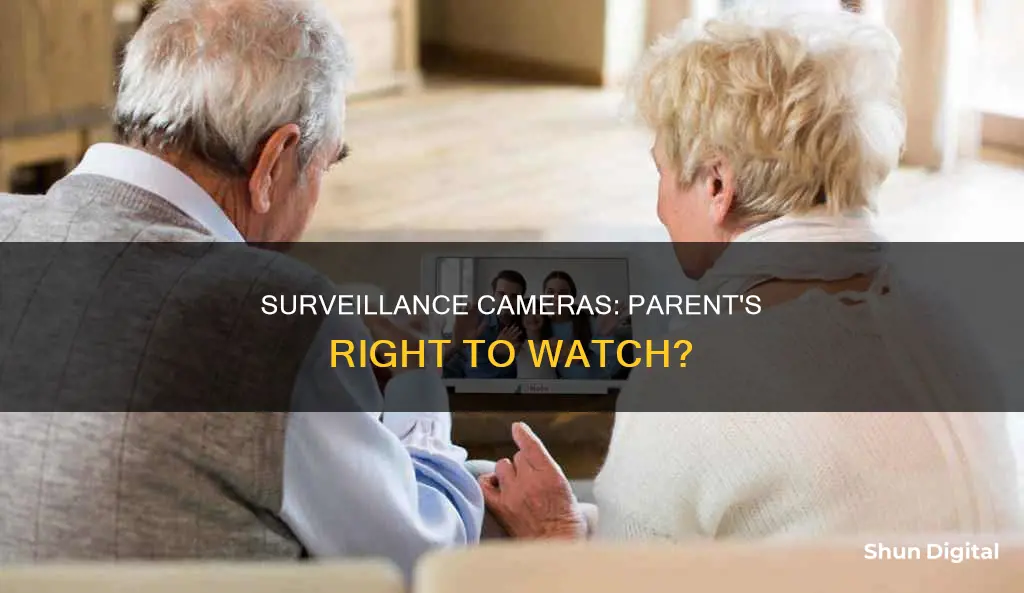
The use of surveillance cameras in daycare centers and private homes is a controversial topic, with privacy concerns and legal implications to consider. While there is no federal law prohibiting the use of security cameras, certain circumstances and locations may be off-limits. For example, it is generally illegal to install hidden cameras in private areas such as bedrooms and bathrooms, especially if the individual has a reasonable expectation of privacy. In the context of parents watching surveillance cameras, the legality may depend on the age of the child and the purpose of the cameras. For instance, baby monitors and nanny cams are generally permitted, but cameras in the bedrooms of young adults over 18 may be considered an invasion of privacy. Additionally, parental access to footage in daycare centers may be restricted to protect the privacy of other children and staff members.
| Characteristics | Values |
|---|---|
| Legality | In most countries/states, it is legal for parents to install security cameras in their own houses, including their children's bedrooms, kitchens, etc. However, this does not extend to areas where individuals have a reasonable expectation of privacy, such as bathrooms, changing rooms, and bedrooms of adult children over 18. |
| Purpose | To ensure the safety of children, promote transparency and accountability, prevent abuse and neglect, and provide peace of mind for parents. |
| Access | Parents have the right to access footage of their children in daycare or school, with certain restrictions in place to protect the privacy of other children and staff members. |
| Consent | Parental consent is generally required for daycares and schools to video children. |
| Privacy | Unrestricted public access to video feeds from daycare or school cameras must be prohibited. Only parents of enrolled children should be granted permission to view classroom feeds. |
What You'll Learn
- Parents can install security cameras in their own house, including their children's bedrooms
- It is illegal for parents to install CCTV in their child's bathroom, toilet or changing room
- Parents have the right to access footage of their child while they are at daycare
- It is generally necessary to obtain parental consent to video children at daycare
- In the US, it's usually legal to install a residential security camera and record video, but not in private places

Parents can install security cameras in their own house, including their children's bedrooms
Firstly, it is important to note that the laws surrounding this issue vary by jurisdiction. In most countries and states, individuals have a reasonable expectation of privacy in certain areas, such as bedrooms, bathrooms, and changing rooms. Therefore, it is generally recommended to consult local regulations and laws before installing cameras in private spaces.
That being said, it is typically legal for parents to install security cameras in their own house, including their children's bedrooms, if the children are minors (usually under the age of 18). As minors, children do not have the same privacy rights as adults, and parents have a legal right to monitor their activities. However, this does not extend to spaces where privacy is expected, such as bathrooms, toilets, and changing rooms.
Additionally, there may be legitimate reasons for parents to install cameras in their children's bedrooms, such as monitoring a child with a physical or mental disability or serious illness. In such cases, parents or guardians have the legal right to install cameras to ensure the child's safety.
It is worth noting that the use of audio recording is strictly regulated, and consent is generally required from at least one party for audio recording to be legal. Therefore, parents should be cautious when using cameras that record audio.
While it may be legal for parents to install security cameras in their children's bedrooms in certain circumstances, it is important to consider the potential impact on the parent-child relationship. Installing hidden cameras, especially in the bedrooms of older children, can damage mutual trust and may lead to feelings of suspicion and resentment. Open communication and negotiation between parents and children are crucial to finding a balance between parental oversight and the child's privacy and autonomy.
Mastering Replay Mode: Rotating Camera in Asseto Corsa
You may want to see also

It is illegal for parents to install CCTV in their child's bathroom, toilet or changing room
It is illegal for parents to install CCTV in their child's bathroom, toilet, or changing room
While it is legal for parents to install security cameras in their own houses, including in their children's bedrooms and kitchens, there are exceptions. Bathrooms, toilets, and changing rooms are private spaces where individuals have a reasonable expectation of privacy. Therefore, it is illegal for parents to install CCTV in these areas, even if it is their own property.
Legality of CCTV in private spaces
In most jurisdictions, it is illegal to install video cameras in private spaces without explicit consent. These spaces include bathrooms, toilets, changing rooms, and any other places where people may get undressed. Individuals have a reasonable expectation of privacy in these spaces, which means that it is not legal to record people in these areas.
Consequences of installing CCTV in private spaces
Any individual who goes against laws on video surveillance may face severe penalties. Installing CCTV in private spaces can be considered a prosecutable and punishable felony.
Alternatives to CCTV in private spaces
If parents want to keep tabs on their children for safety reasons, there are alternative methods to consider. Baby monitors are legal for parents to install to monitor infants or young children in their bedrooms, living rooms, or kitchens. Nanny cams can also be used with the consent of the babysitter, but it is important to note that laws have strict rules regarding audio recording. No one can record audio without the consent of the person being recorded.
The importance of privacy
As children grow older, parents should consider removing cameras from their rooms as children develop a greater understanding of privacy and autonomy. While the safety of children is a priority, it is important to balance this with the child's well-being, comfort, and right to privacy. Open communication between parents and children is crucial to avoid any unnecessary arguments or misunderstandings.
Finding the Camera Raw Plugin: Location Guide
You may want to see also

Parents have the right to access footage of their child while they are at daycare
As a parent, it is understandable to want to ensure your child's safety and that they are being well-cared for while they are at daycare. In recent years, the use of surveillance cameras in daycare centres has become more common, and parents often have the right to access this footage. However, there are some important considerations and potential drawbacks to this practice.
Benefits of Surveillance Cameras in Daycare Centres
One of the main advantages of surveillance cameras in daycare centres is that they provide parents with peace of mind, knowing that they can check on their child throughout the day. Cameras can also serve as evidence in the event of an incident or allegation of abuse or neglect, helping to ensure the safety and well-being of the children. Additionally, they promote transparency and accountability, allowing parents and authorities to monitor the activities of caregivers and ensure proper protocols are followed.
Privacy and Safety Concerns
While parents have the right to access footage of their child, it is important to note that there are usually restrictions in place to protect the privacy of other children and staff members. For example, parents may only be able to access footage of their own child and may be required to sign a consent form before viewing. Additionally, cameras should only be placed in public areas such as hallways and playgrounds, and not in private spaces like bathrooms or changing rooms.
Potential Drawbacks and Negative Effects
Despite the benefits, there are also some potential negative consequences of surveillance cameras in daycare centres. Some parents may feel anxious or uneasy about having their child's every move recorded, and it can lead to a constant state of surveillance and micromanagement. This can also distract childcare workers, as they may spend more time answering calls and messages from parents and may be hesitant to discipline children. Additionally, there are security concerns, as video streams can be hacked, compromising the safety and privacy of the children.
In conclusion, while parents generally have the right to access footage of their child at daycare, it is important to weigh the benefits against the potential drawbacks and privacy concerns. It is crucial to have open communication with daycare providers and ensure that proper safety and security measures are in place to protect the well-being of the children.
Unleashing Camera Raw: Mastering the Art of Masking
You may want to see also

It is generally necessary to obtain parental consent to video children at daycare
The use of surveillance cameras in daycare settings is a controversial topic. While some parents may feel reassured by the presence of cameras, others may have concerns about privacy and safety. Ultimately, the decision to install cameras in a daycare centre should be made with careful consideration of the potential benefits and drawbacks.
One of the main reasons why daycare centres choose to install surveillance cameras is to provide peace of mind for parents. By allowing parents to view live or recorded footage of their children during the day, cameras can help alleviate anxiety and give parents a sense of security. Cameras can also promote transparency and accountability in daycare centres, as parents and authorities can monitor the activities of caregivers and ensure that proper protocols and procedures are being followed. Additionally, cameras can serve as a deterrent to abusive or neglectful behaviour and provide evidence in the event of any incidents.
However, it is important to consider the potential drawbacks of surveillance cameras in daycare settings. Some parents may feel that constant monitoring of their children's activities is an invasion of privacy, both for the children and the daycare staff. Cameras may also distract childcare workers from their duties, as they may spend more time answering calls and messages from parents who are watching the footage. In some cases, cameras may even discourage discipline and structure in the daycare environment, as staff may be worried about offending parents who are viewing the footage.
Another important consideration is the security of the footage. Without proper security protections, surveillance systems are vulnerable to hacking, which could lead to strangers accessing the footage and learning information about the children. Additionally, parents may share login details with family members or friends, further increasing the number of people with access to the footage.
To address these concerns, daycare centres that choose to install surveillance cameras should implement robust security measures, such as regularly changing passwords and restricting access to authorised individuals. Daycare centres should also obtain parental consent before recording children, out of respect for privacy and legal protection. Overall, while surveillance cameras in daycare settings can have benefits, it is crucial to carefully weigh the potential advantages against the potential risks to ensure the safety and well-being of the children.
Candid Camera Mode: Capturing Unscripted Moments
You may want to see also

In the US, it's usually legal to install a residential security camera and record video, but not in private places
In the US, it is generally legal to install a residential security camera and record video. However, there are important privacy laws and consent laws that must be considered. US citizens are guaranteed a "reasonable expectation of privacy", which means that certain private places, such as bathrooms, bedrooms, and changing rooms, are off-limits for recording. This applies to both audio and video recording.
The "one-party consent" law states that it is legal to record a conversation, with the consent of at least one party involved, whether it is in person or over the phone. This law also applies to audio recordings made by security cameras. However, some states have stricter "all-party consent" laws, requiring the consent of all parties involved in a conversation for it to be recorded.
It is important to note that the laws regarding security cameras vary by state, county, and city. While there are no specific federal laws governing the use of security cameras, it is crucial to be aware of and comply with local regulations to avoid legal issues.
For example, in California, it is illegal to record any confidential communication, regardless of consent. In Georgia, video surveillance is permitted in both public and private settings, but the cameras must be visible. In Florida, Alabama, and Minnesota, hidden cameras are allowed in non-private settings. Tennessee, Michigan, and Utah require consent for hidden cameras in private places, while Hawaii requires consent for any type of security camera.
Additionally, it is generally considered illegal to install security cameras in the bedrooms of children who are over the age of 18, as they are no longer minors and have a right to privacy.
To summarise, while it is typically legal to install residential security cameras in the US, it is crucial to respect the privacy of individuals and comply with local laws and regulations regarding consent and placement of cameras.
Fighting Camera Tickets: Your Legal Strategy in Court
You may want to see also
Frequently asked questions
Yes, in most countries and states, it is legal for parents to install and watch surveillance cameras in their own homes, including their children's bedrooms, as long as the children are minors (under 18 years old). However, it is illegal to install cameras in areas where individuals have a reasonable expectation of privacy, such as bathrooms, toilets, and changing rooms.
In most states, there is no legal requirement for daycare centers to have video surveillance. However, daycare camera laws have been implemented in many states to promote transparency, accountability, and child safety. Parents have the right to access footage of their child while at daycare, but there are restrictions in place to protect the privacy of other children and staff members.
For schools, the answer may vary depending on the state and local laws. In some cases, parents may have the right to access video evidence if their child is suspended or involved in an incident, especially if the school is using the video as "evidence". However, the school may refuse to provide the video to protect the privacy rights of other children involved.
There are two main types of laws that influence the legality of security cameras: Expectation of Privacy Laws for video recordings, and One- or Two-Party Consent Laws for audio recordings. It is generally legal to record video in public or within your property, as long as it is not in areas with a greater expectation of privacy, such as bathrooms, bedrooms, and changing rooms. For audio recordings, the laws vary by state, with some states requiring all parties' consent and others only needing one party's consent.



